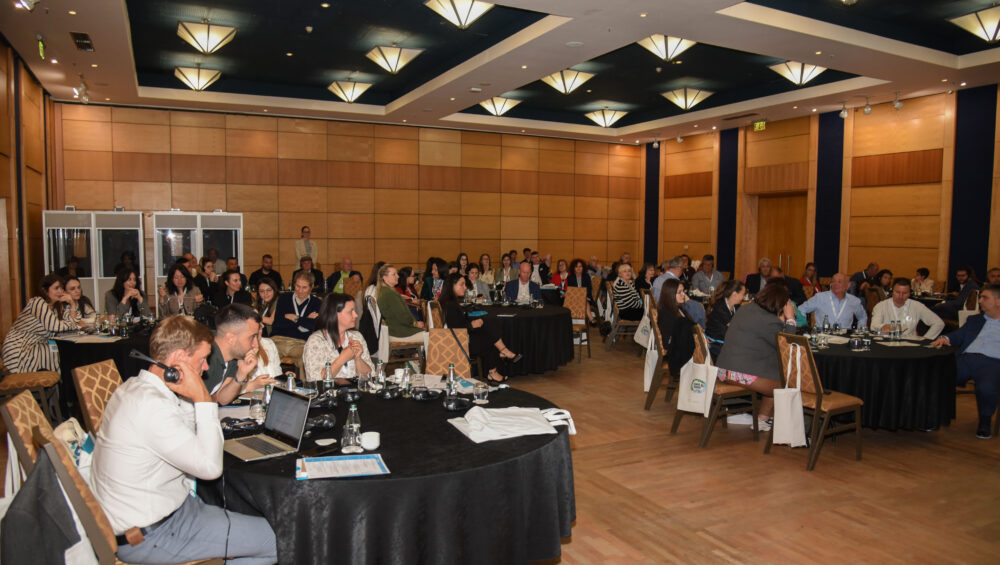Tirana, on May 30th 2025, the Final Conference of the ESPID4Vjosa project marked the conclusion of a multi-year initiative aimed at fostering science-based management and cross-sector collaboration for the protection of the Vjosa River, Europe’s last wild river.
Held with the participation of national and international stakeholders, the event brought together government representatives, scientists, civil society actors, and local authorities from Albania, Greece, and Austria.
Strengthening Regional Ties Through Science and Dialogue
The conference was opened by Mr. Martin Schaller, Deputy Head of Mission of the Republic of Austria to Albania, who emphasized the importance of long-term, cross-border cooperation in line with European Union standards. His remarks underlined Austria’s continued support for regional dialogue and integrated water management.
Prof. Dr. Fritz Schiemer, one of the project’s founding scientific voices, reflected on more than a decade of effort to protect the Vjosa from hydropower threats, notably Poçem and Kalivaç. He stressed the critical role of scientific research in river basin planning and the necessity of institutionalizing cooperation between scientists, government bodies, and local communities. Professor Schiemer added that transboundary cooperation, but universities as well as government institutions is essential for the future of the river.
From Confrontation to Cooperation
Participants highlighted a significant shift in environmental advocacy, from opposing destructive projects to building proactive partnerships for sustainable river management. Olsi Nika, Executive Director of EcoAlbania, outlined how the project helped form a cross-border civil society network working toward inclusion in the future Vjosa River Basin Council. Panelists discussed the importance of public engagement, transparent decision-making, and maintaining momentum toward establishing a transboundary protected area that includes both the Vjosa and Aoos Rivers. On the question of transboundary cooperation, Nika said that while progress can be pushed, it is essential for people to exchange knowledge and break the ice to open doors for further collaboration. Prof. Dr. Aleko Miho added that cooperation for nature preservation has improved, and exchanges have been facilitated as the ecosystem is shared.
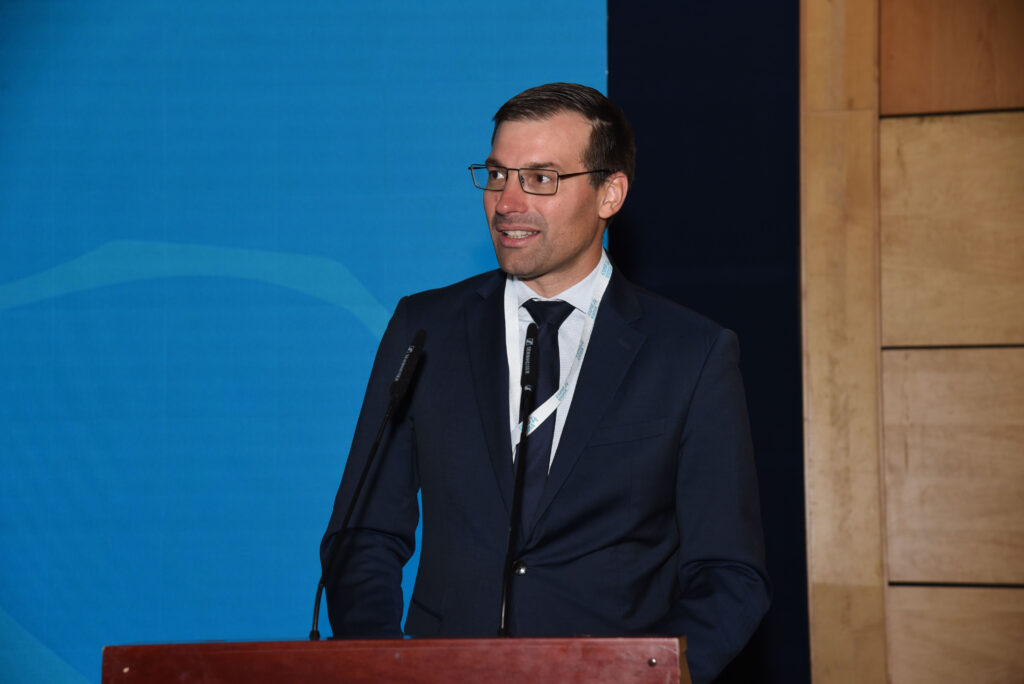
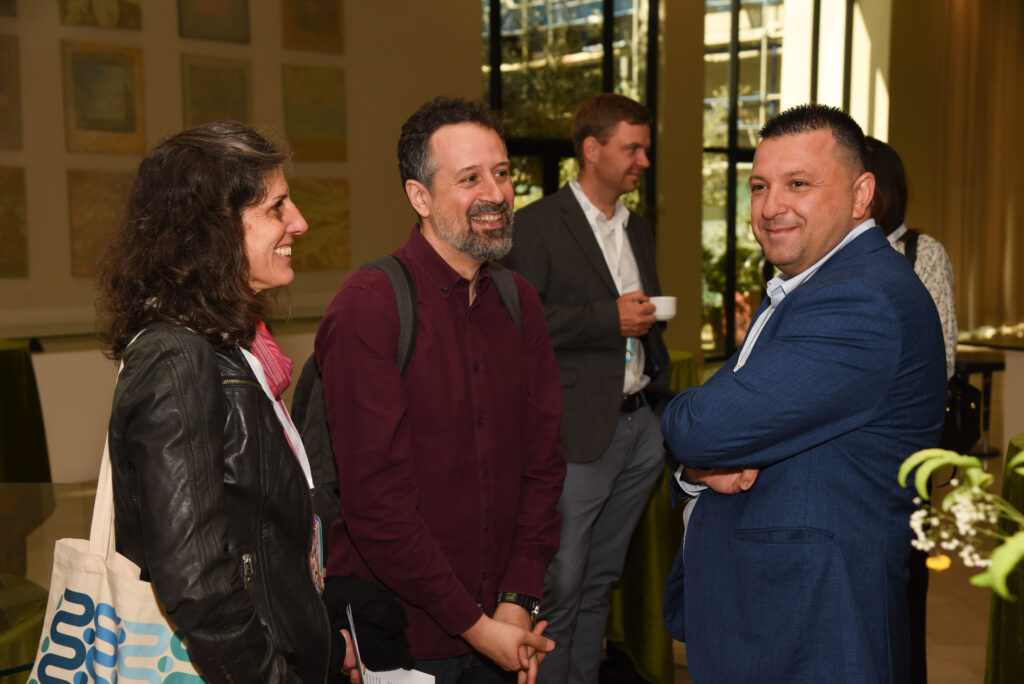
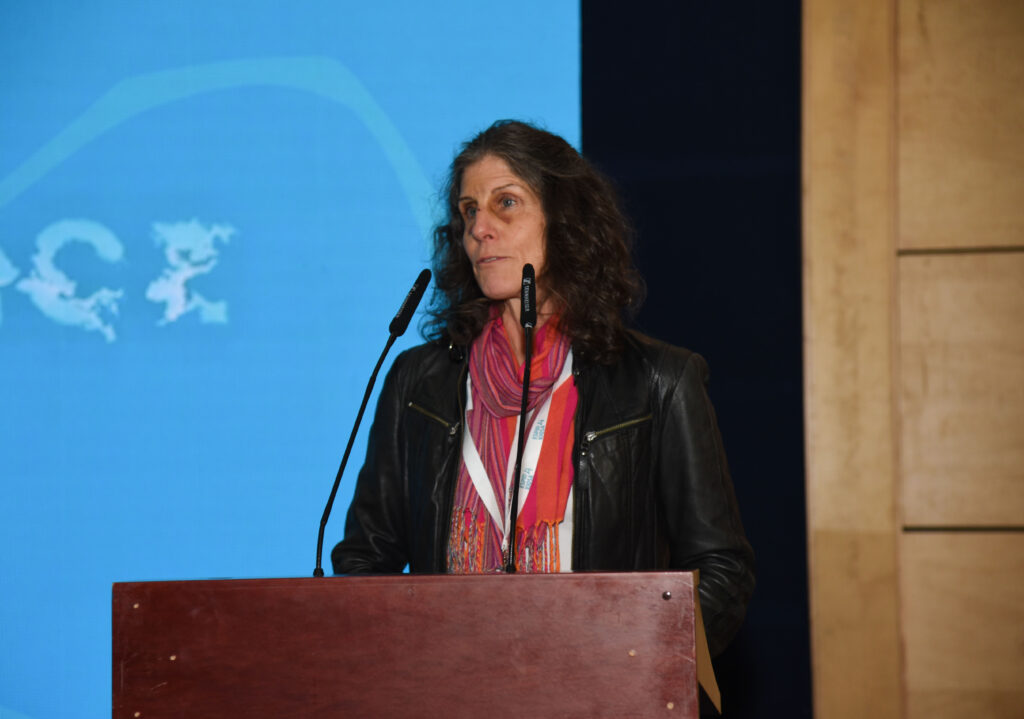
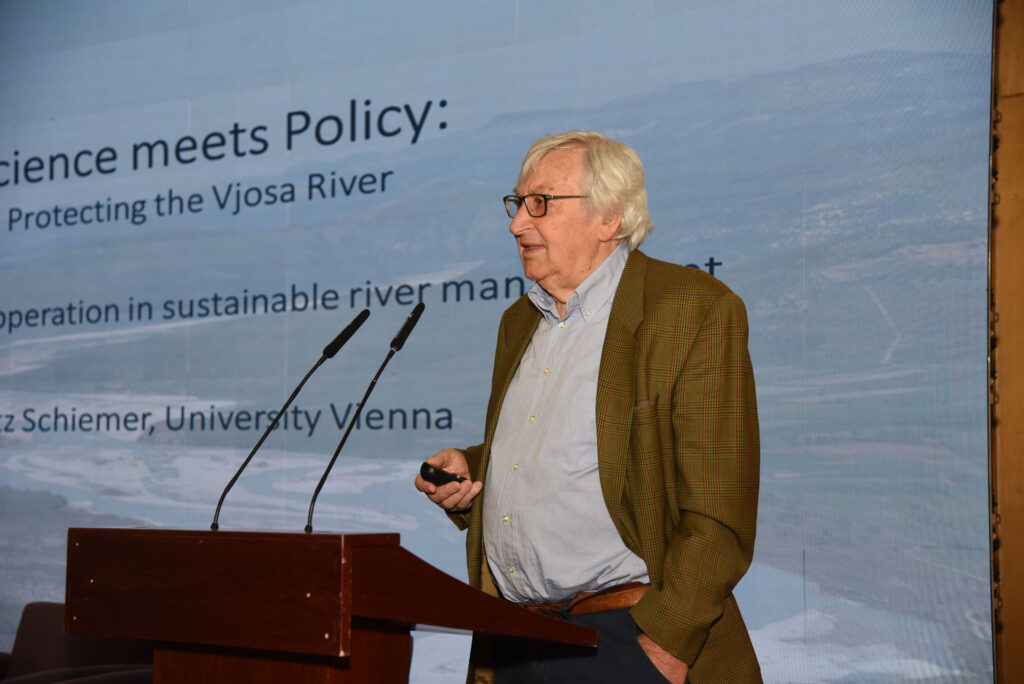
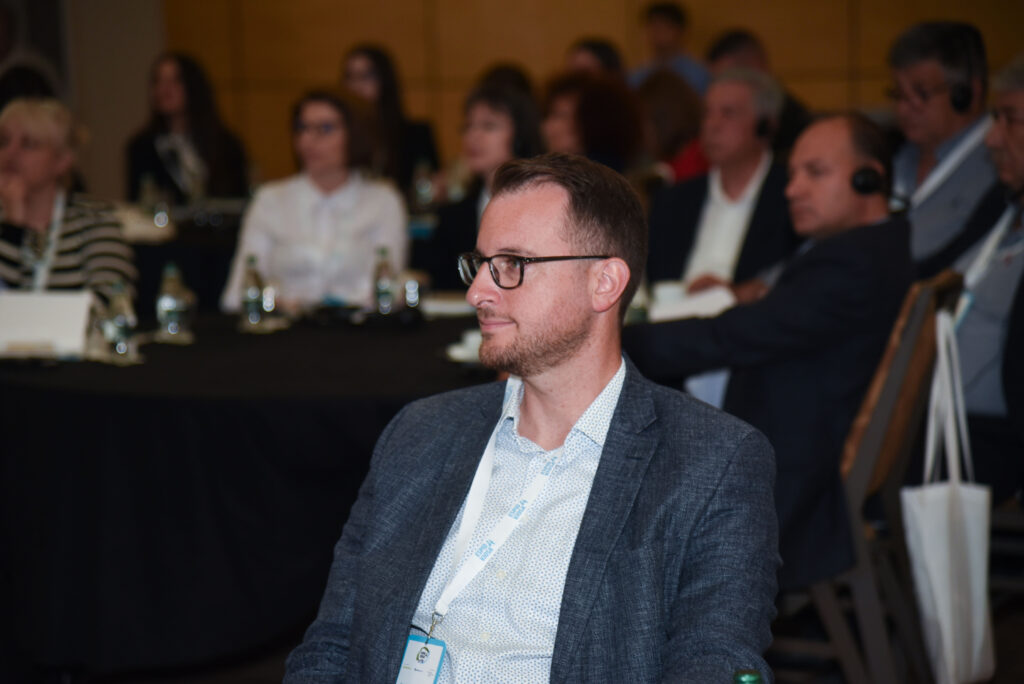
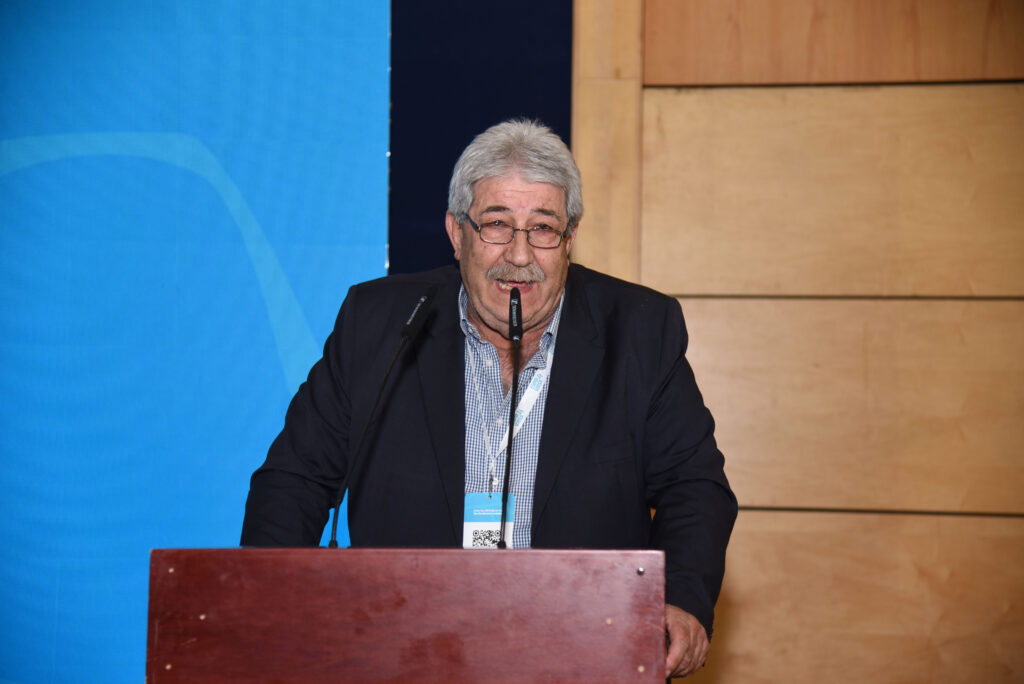
Science speaks
In a moderated session led by Prof. Dr. Klodian Skrame, experts highlighted the importance of preserving the Vjosa River as a model for sustainable river management. Dr. Christoph Hauer emphasized the need to protect natural processes and incorporate nature-based solutions, noting that current policies often overlook natural river morphology. Prof. Dr. Elena Kokthi stressed closer ties between science and local communities, sharing that locals in her hometown of Këlcyrë are highly engaged in protecting the river. Etleva Dashi addressed pollution challenges, particularly from agriculture and poor waste management, advocating for sustainable tourism and circular economy practices. Elton Qendro noted the river’s value lies in its undammed state and emphasized the importance of community involvement and alternative energy sources. The session concluded that effective conservation requires coordinated efforts aligned with EU accession and the Water Framework Directive.
Integrated Water Management and Cross-border Cooperation
Chaired by Ms. Gerta Lubonja, a panel of local and regional leaders including mayors from Gjirokastra, Përmet, and Zagori, the Vlora prefect, and national agency directors, discussed governance and development around the Vjosa River. Zagori Mayor Georgios Soukouvelos noted the Piges dam at Aoos Springs appears non-problematic, while Vice Mayor Aulona Meshini highlighted gains in agro-tourism and technical capacity despite limited resources. Gravel extraction and tourism projects, such as luxury hotels, remain under careful review. General Director It was stated that the Vjosa management plan has been active since January 2025, with public participation and cross-border cooperation underway. The plan, approved by the Council of Ministers and aligned with the Water Framework Directive, is expected to support UNESCO designation. Stakeholder involvement and civil society participation are central, with a dedicated management office and enforcement mechanisms being established. The plan emphasizes sustainability and adaptability but does not address every issue in detail.
Cross-Border Commitment and Local Voices: Civil Society Unites for Vjosa’s Future
The Civil Society Panel, moderated by Ola Mitre, brought together voices from Albania and Greece to discuss the Vjosa Civil Society Network (VCSN) and the growing role of local engagement in protecting the river. Ardian Gogo shared that communities along the Vjosa are deeply invested in finding a balance between conservation and development, blending traditional practices with modern approaches. He expressed hope that the network would strengthen these local efforts. Niko Dumani highlighted a key government decree requiring municipal approval for any investment projects. He emphasized this as an important step toward safeguarding the river’s integrity. While support from the national level has been vital, especially in the push for UNESCO recognition, he cautioned against high-impact developments like five-star hotels and flagged concerns about water abstraction plans that could exceed the river’s capacity. Dumani also noted that, despite their protective measures, backing from some community members and NGOs has been limited.
Albana Allushaj spoke to the importance of including Roma communities as active stakeholders in the Vjosa basin, ensuring broader representation in conservation efforts. From Greece, Alexis Katsaros reflected that while the VCSN model isn’t a one-size-fits-all solution, its tools and strategies can be adapted to suit different contexts. Jonada Vasili emphasized the need to move beyond fragmented protection, advocating for a cross-border, institutionalized approach rooted in local commitment. She pointed to memoranda of understanding and joint initiatives as key to sustaining progress. Closing the discussion, Mayor Georgios Soukouvelos raised a timely concern about wastewater management related to new building projects. This issue surfaced during a recent visit by the Prime Minister in support of UNESCO designation.
Sustainable Solutions in Action: Tepelena Water Company Leads by Example
At the Business Panel on Sustainable Practices, Daniela Malke from Tepelena Water Company highlighted the company’s commitment to environmentally responsible operations. She detailed how the company actively separates waste, conserves water, and reduces carbon emissions by planting trees. A notable achievement is the use of solar panels, which now provide 60% of the company’s energy needs. This demonstrates how even regional businesses can play a key role in advancing sustainability.
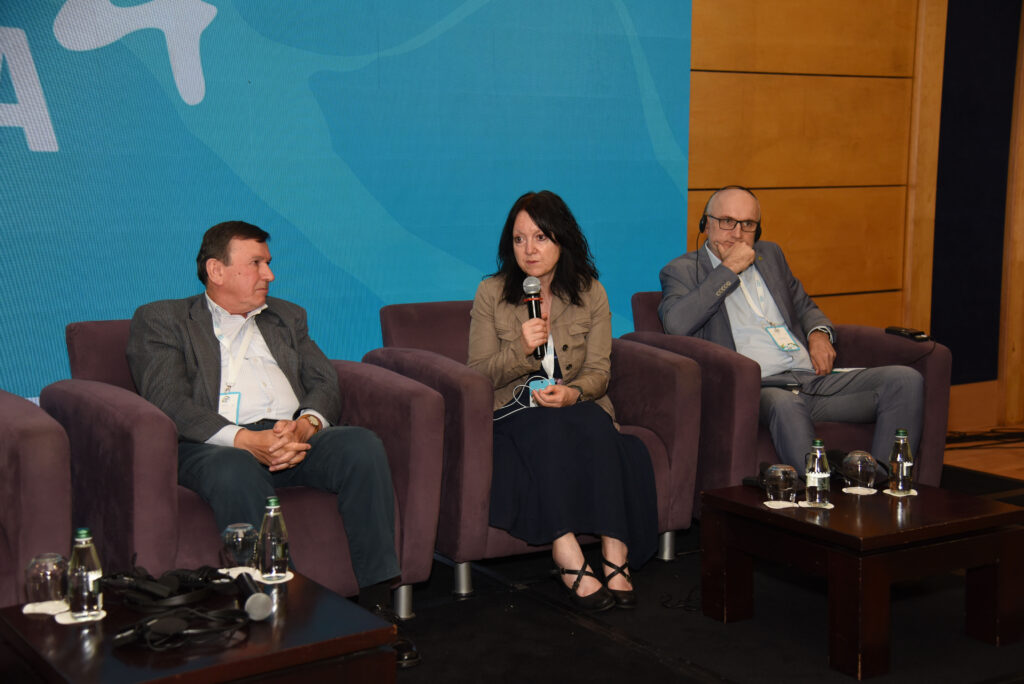
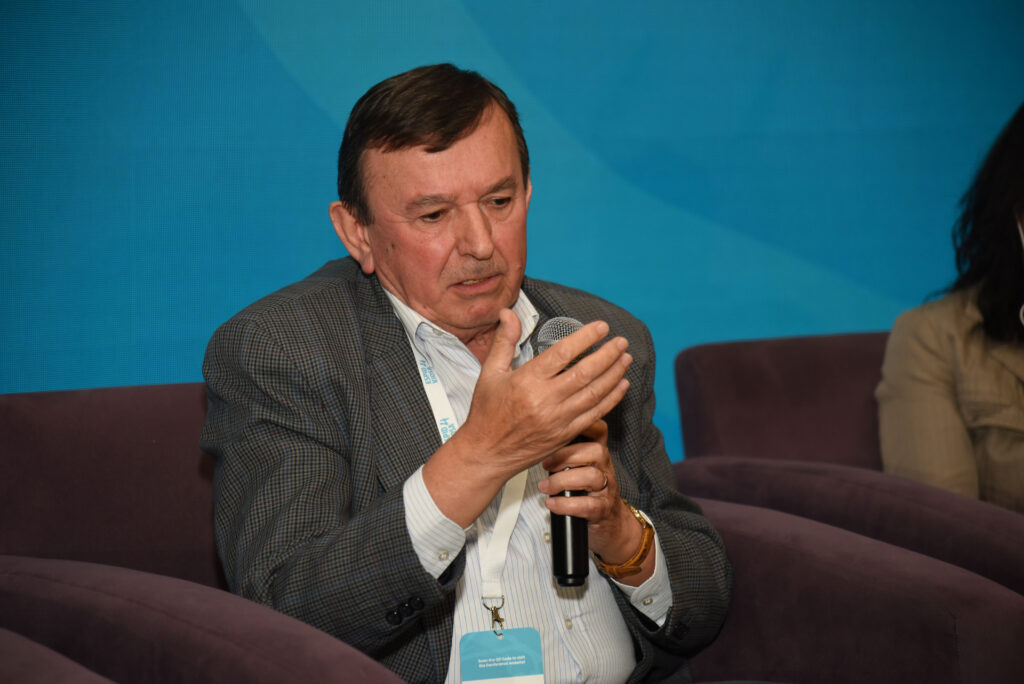
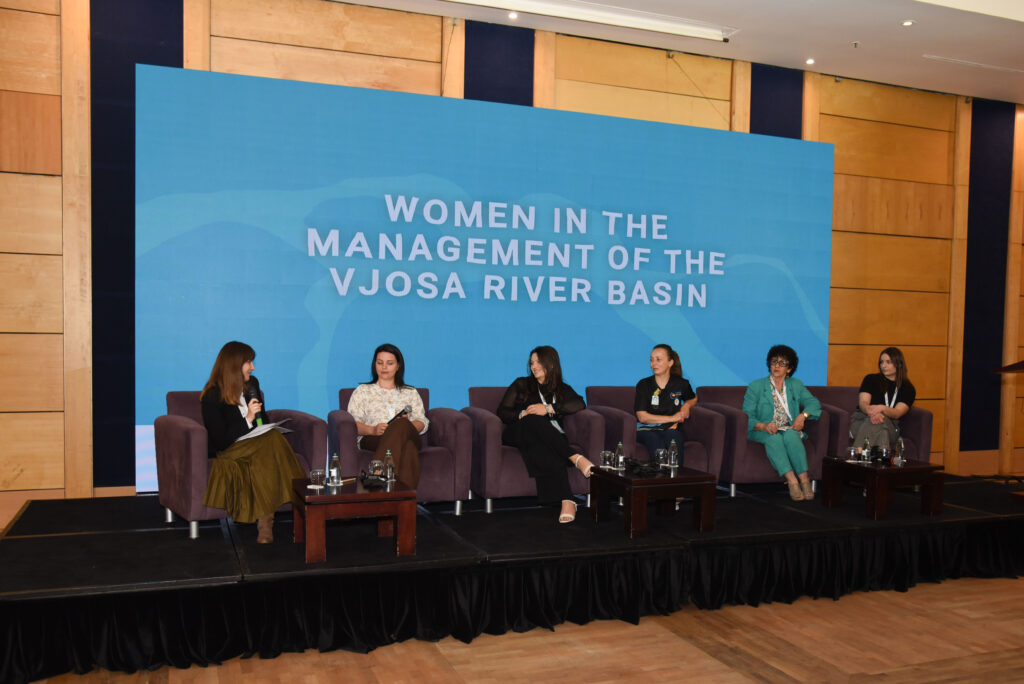
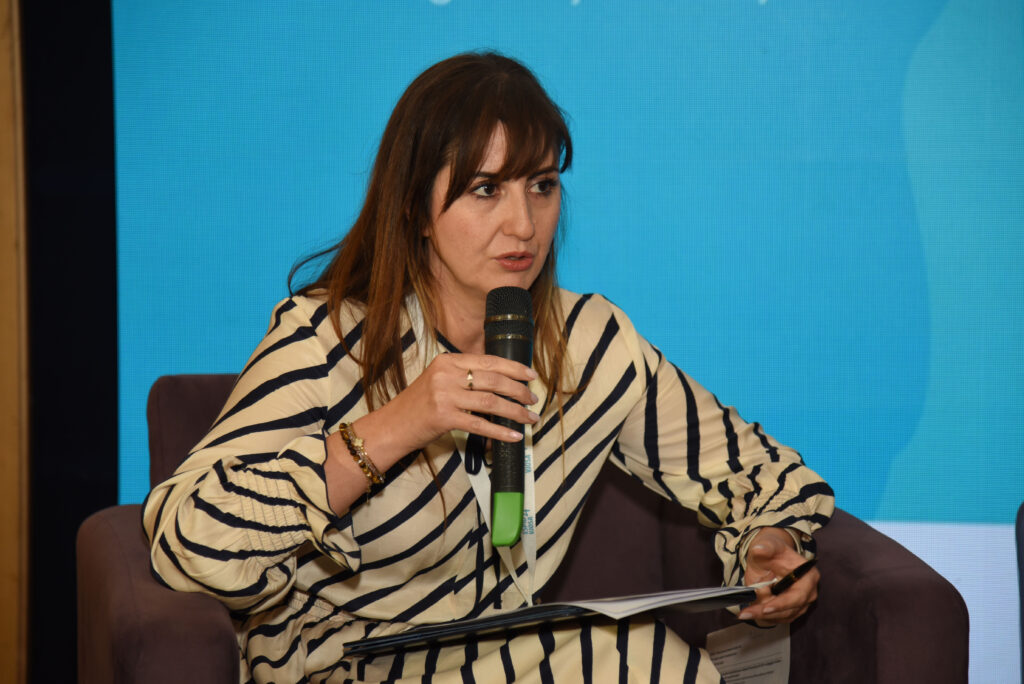
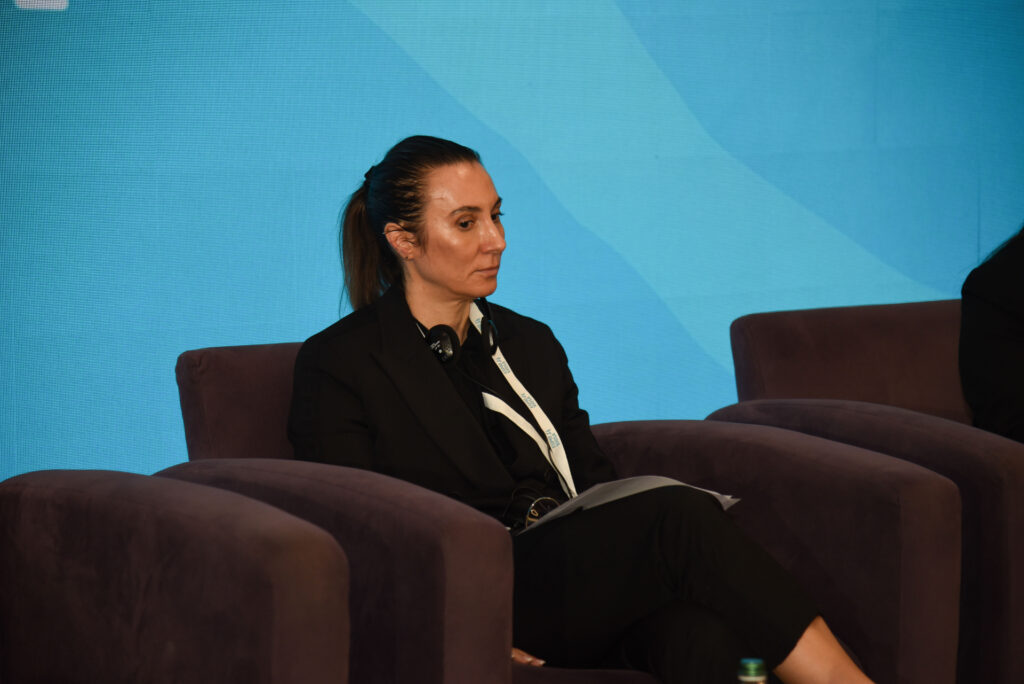
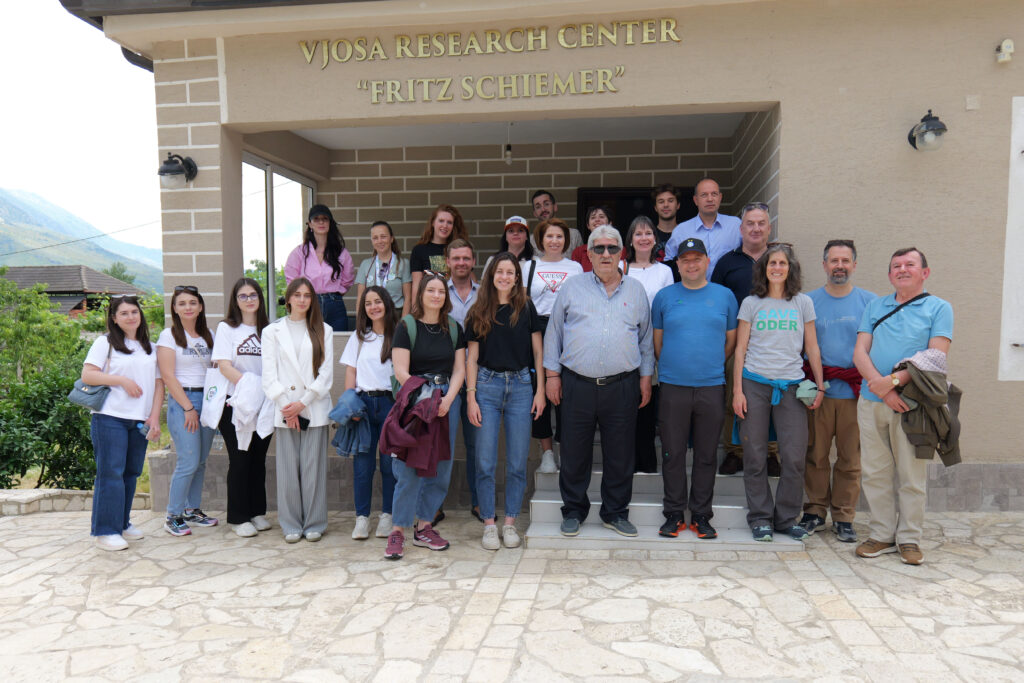
Women and Youth Leading the Way
A dedicated panel recognized the essential role of women in river conservation. Activists, educators, and community leaders shared personal stories and emphasized the urgency of engaging younger generations in environmental protection. It was noted by Besjana Guri that the women’s role in decision making processes is as important as men’s. She illustrated this by examples in the region of women’s radical actions to protesting. Lela Qejvani emphasised the need to motivate younger women in remote areas to take action and shared how she tries to do that in her everyday life. Maria Anna Dimopoulou described women-led initiatives in Epirus, noting active participation in public consultations and efforts toward a transboundary park. She also mentioned that youth participation is limited as many young people leave the region.
Coordinated Efforts Across Projects
Moderated by Olsi Nika, this panel brought together leaders from sister projects working collaboratively to protect the Vjosa and Aoos Rivers. Violeta Zuna presented the EU4Rivers project, which supports the Vjosa management plan through capacity building, tailored equipment, and funding advocacy. She emphasized that while Albania aims to protect 30% of its territory, effective management and enforcement are more critical than simply expanding protected zones. Irilena Linardaki introduced the Ri-Connect project, which promotes transboundary collaboration on the Aoos River, engages communities, supports biodiversity research, and educates youth through creative tools like science weeks and role-playing.
Debora Bonucci highlighted the importance of centralizing and sharing data across projects, while Prof. Dr. Aleko Miho shared new scientific discoveries in the Shushica River and encouraged stronger ties between researchers and decision-makers. He acknowledged ongoing issues with water chemistry and erosion despite generally good water quality. Thomas Ertl discussed his team’s pollutant modeling efforts, aimed at enhancing data-driven decisions and improving the management plan. Moderator Olsi Nika underscored the need for national authorities to better integrate scientific findings into governance, reaffirming that cooperation will extend beyond the life of these projects.
A New Chapter for the Vjosa? What comes next?
While this conference marked the official closing of the ESPID4Vjosa project, it was widely recognized as a new beginning for sustained action. The data, relationships, and structures established through the project will continue to support the implementation of the Vjosa River Management Plan, adopted in early 2025 and now aligned with the EU Water Framework Directive.
As Albania advances toward European integration, the Vjosa stands as a symbol of what’s possible through unity, science, and civic engagement.
See highlights from the conference on @EcoAlbania


